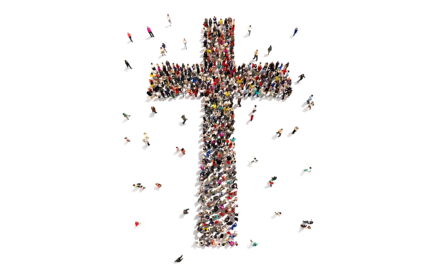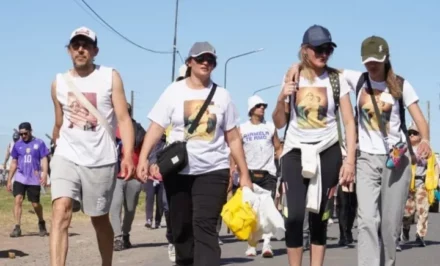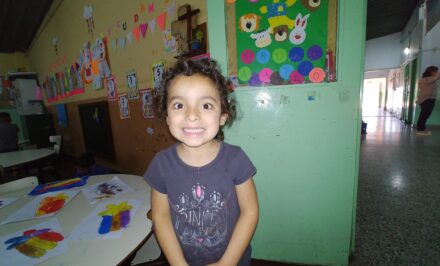 org. Every part of the Church, and many others outside of her – believers or non-believers – have received Pope Francis` clear and hope-filled words. They are also words that motivate us to assume the responsibility we all have to build a world in accordance to the Will of God, in the strength of the Spirit and through the way of Christ. Cardinals and bishops, priests, men and women religious, novices and seminarians, families, the youth and elderly, communities and institutes have received this challenge to go out “onto the street” to take – not a utopian hope – but concrete deeds in living evangelization projects to all men and women wherever they may be. And if they are on the “outskirts” then we have to go there, with all the risks and dangers it may include. He repeats to us constantly: I prefer an injured church, because she goes out to serve, to a Church that is sick because of her self-absorption. Testimony to this can be found in the section of Schoenstatt.org where on a weekly basis texts are selected which motivate us on our own pilgrimage toward the 2014 Jubilee. Undoubtedly, because we are the Church, these words are also directed to us. How happy must our Father not be with this missionary impetus which is given to us from the very heart of the Church! (Fr. José María García)
org. Every part of the Church, and many others outside of her – believers or non-believers – have received Pope Francis` clear and hope-filled words. They are also words that motivate us to assume the responsibility we all have to build a world in accordance to the Will of God, in the strength of the Spirit and through the way of Christ. Cardinals and bishops, priests, men and women religious, novices and seminarians, families, the youth and elderly, communities and institutes have received this challenge to go out “onto the street” to take – not a utopian hope – but concrete deeds in living evangelization projects to all men and women wherever they may be. And if they are on the “outskirts” then we have to go there, with all the risks and dangers it may include. He repeats to us constantly: I prefer an injured church, because she goes out to serve, to a Church that is sick because of her self-absorption. Testimony to this can be found in the section of Schoenstatt.org where on a weekly basis texts are selected which motivate us on our own pilgrimage toward the 2014 Jubilee. Undoubtedly, because we are the Church, these words are also directed to us. How happy must our Father not be with this missionary impetus which is given to us from the very heart of the Church! (Fr. José María García)
![]()
WEEK 11/2014
“Lent is a good time for sacrificing. Let us deny ourselves something every day to help others.”
Tweet from 7.3.2014

At the time, I was the Vicar General and lived in the Curia. Every morning, early, I come downstairs to where the fax machine was to see if something had arrived. And on Easter morning, I read a fax from the superior of the community: “Yesterday, half an hour before the Easter Vigil, Fr. Aristi died, he was 94 or 96 years old. The funeral will be on…” And on Easter morning I had to go to with the priests at the old age home – as I normally did at Easter. Then, I told myself, after lunch I will go to the church. It was a big church, very big, with a beautiful crypt. Below the crypt was the coffin. Only two elderly ladies were still there praying, but there was not a single flower. I thought: here is this man who forgave the sins of all the priests in Buenos Aires, mine as well, not even a single flower…I went to a florist, because there are florists on the corners in Buenos Aires, and I bought flowers, roses…I returned and began to arrange the flowers nicely on the coffin nicely …I looked at the rosary in his hand…and then it occurred to me…the thief inside all of us, no? While I was arranging the flowers, I grabbed the cross of the rosary, and with some force, managed to pull it away. In that moment, I looked at him and I said to him: “Give me half of your mercy.” I felt something very powerful that gave me the courage to do this and for this petition! And then I took the cross and put it in my pocket (the Pope points to his chest) and from that day, until today, that cross is always with me. When I think badly of someone, my hand reaches here (the Pope points to his chest) always. And I feel the grace! This makes me feel good. How good the example of a merciful priest, a priest that touches the wounds can be…
Meeting with the parish priests of Rome
We are invited to embark upon a journey on which, by defying routine, we strive to open our eyes and ears, but especially to open our hearts, in order to go beyond our own “backyard”. Opening oneself to God and to the brethren. We know that this increasingly artificial world would have us live in a culture of “doing”, of the “useful”, where we exclude God from our horizon without realizing it. But we also exclude the horizon itself! Lent beckons us to “rouse ourselves”, to remind ourselves that we are creatures, simply put, that we are not God. In the little daily scene, as I look at some of the power struggles to occupy spaces, I think: these people are playing God the Creator. They still have not realized that they are not God. And we also risk closing ourselves off to others and forgetting them. But only when the difficulties and suffering of others confront and question us may we begin our journey of conversion towards Easter. It is an itinerary which involves the Cross and self-denial. Today’s Gospel indicates the elements of this spiritual journey: prayer, fasting and almsgiving (cf. Mt 6:1-6; 16-18). All three exclude the need for appearances: what counts is not appearances; the value of life does not depend on the approval of others or on success, but on what we have inside us.
Mass, Ash Wednesday
Living our Baptism to the full also means not accustoming ourselves to the situations of degradation and misery we encounter as we walk along the streets of our cities and countries. There is a risk of passively accepting certain forms of behaviour and of not being shocked by the sad reality surrounding us. We become accustomed to violence, as though it were a predictable part of the daily news. We become accustomed to brothers and sisters sleeping on the streets, who have no roof to shelter them. We become accustomed to refugees seeking freedom and dignity, who are not received as they ought to be. We become accustomed to living in a society which thinks it can do without God, in which parents no longer teach their children to pray or to make the sign of the Cross. I ask you: do your children, do your little ones know how to make the sign of the Cross? Think about it. Do your grandchildren know how to make the sign of the Cross? Have you taught them? Think about it and respond in your heart. Do they know how to pray the “Our Father”? Do they know how to pray to Our Lady with the “Hail Mary”? Think about it and respond within yourselves. Growing accustomed to un-Christian and convenient behaviour drugs the heart!
General Audience, Ash Wednesday
Aseptic priests do not help the Church. The Church today can be compared to a “field hospital;” we need to heal the wounds…There are many wounded people, by material problems, scandal, including those in the Church…People who have been wounded by the world’s illusions…We, as priests, need to be there, with these people. Mercy means, first and foremost, healing the wounds…not an analysis; we can provide specialised care later, but first we must treat the open wounds. Do you know the wounds of your parishioners? Are you close to them?…Do you cry? How many of us cry at the suffering of a child, the destruction of a family, for the many people who cannot find the way? The cries of a priest…do you cry or have we lost our tears in this presbytery? Do you cry for your people? Tell me, do you intercede before the Blessed Sacrament? Do you battle with the Lord for your people, as Abraham did?
Meeting with the parish priests of Rome
With its invitations to conversion, Lent comes providentially to awaken us, to rouse us from torpor, from the risk of moving forward by inertia. The exhortation which the Lord addresses to us through the prophet Joel is strong and clear: “Return to me with all your heart” (Jl 2:12). Why must we return to God? Because something is not right in us, not right in society, in the Church and we need to change, to give it a new direction. And this is called needing to convert! Once again Lent comes to make its prophetic appeal, to remind us that it is possible to create something new within ourselves and around us, simply because God is faithful, always faithful, for he cannot deny himself, he continues to be rich in goodness and mercy, and he is always ready to forgive and start afresh. With this filial confidence, let us set out on the journey!
Mass, Ash Wednesday
Christianity is not a soulless rule, a list of formal observances so that people can put on the good face of hypocrisy in order to hide a heart that is empty of charity. Christianity is the very flesh of Christ who leans towards those who suffer without feeling ashamed. The fact is that the doctors of the law had transformed the observance of the Commandments into a formality, changing religious life into ethics and forgetting its roots, that is a story of salvation, election, covenant. Receiving a Father’s love from the Lord, receiving the identity of a nation from Lord and immediately to transform it into a life ethic that rejects that gift of love. Hypocritical people are good people, they do everything that they should. They seem good! They are ethicists, but ethicists without goodness, because they have lost the sense of belonging to a people. The Lord of salvation in the heart of a people, belonging to a people.
Santa Marta, 7.3.2014
The Prophet Isaiah had already clearly described what fasting was from God’s perspective: “Loose the chains of oppression,” “give freedom to the oppressed,” but also “share your bread with the hungry and shelter the poor without a roof over their heads,” “clothe the naked.” This is the fasting that the Lord wants! Fasting that is concerned for his brother’s life, who is not ashamed — as Isaiah tells us — by his brother’s flesh. Our perfection, our holiness moves ahead with our people, into which we were chosen and placed. Our greatest act of holiness is precisely in the flesh of our brother and in the flesh of Jesus Christ. Today’s act of holiness, ours, here, is not a hypocrite’s fast: it is not being ashamed of the flesh of Christ that comes to us here today! It is the mystery of the Body and Blood of Christ. It is the sharing of bread with the hungry, healing the sick, those who cannot give us anything in return: do not be ashamed by the flesh, this is it!”
Santa Marta, 7.3.2014
The most difficult fast is the fast of goodness. It is the fast of one who is like the Good Samaritan, bending over the injured man, and it is not the priest who looks at this same unfortunate man and carries on because he is afraid of being contaminated. And so, that is the Church’s proposal today: am I ashamed by my brother’s flesh? When I give alms, do I drop the coin without touching the hand? And if I do, by chance touch it, to I pull back immediately? When I give alms, do I look into the eyes of my brother, my sister? When I know that someone is ill, do I go and visit them? Do I greet them with tenderness? There is a sign that can perhaps help us, it is a question: Do I know how to embrace the sick, the elderly, children, or have I lost the ability to embrace? Those hypocrites do not know how to embrace! They have forgotten…do not be ashamed by the flesh of our brother: it is our flesh! We will be judged according to the way in which we behaved towards this brother, this sister.
Santa Marta. 7.3.2014
Translation: www.vatican.va, VIS, Sarah-Leah Pimentel/schoenstatt.org
See all texts in “Francis for the Pilgrims 2014”
Message for World Youth Day 2014
The aim of the pilgrimage
is the renewal of the covenant of love
as a missionary and unifying creative force,
i.e. internally the renewal of the Schoenstatt Family
and externally the shaping of covenant culture.













